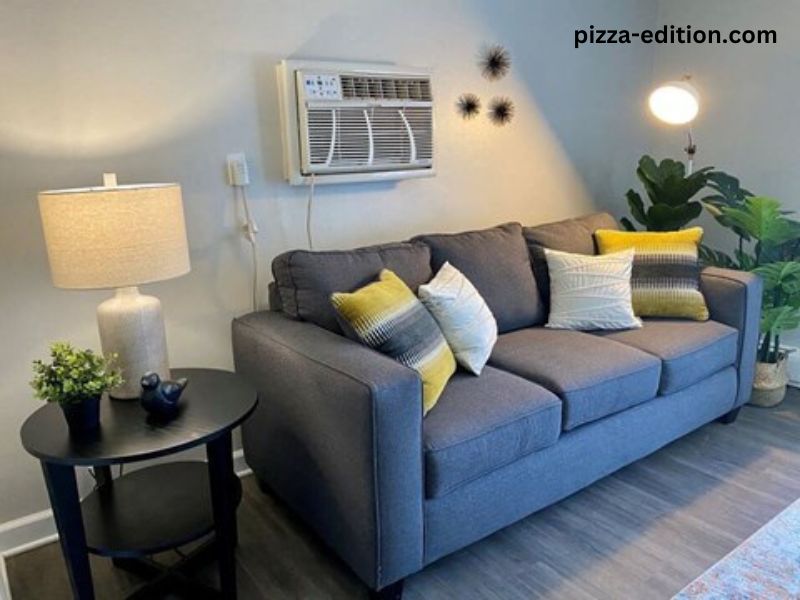In today’s housing market, finding an affordable living situation can feel like a daunting task. For many, particularly students, young professionals, or those in transitional phases of life, the idea of renting a room for around $300 a month is an appealing solution. Whether you’re looking to save money, share expenses, or simply find a more flexible living arrangement, this guide will help you navigate the search for a room for rent near you.
Understanding the Market
Before diving into your search, it’s important to understand the current rental market in your area. Room rental prices can vary significantly based on location, amenities, and demand. Urban areas tend to have higher rental prices, while suburban and rural locations may offer more affordable options.
Research the average cost of rooms in your city or town to set realistic expectations. Websites like Zillow, Craigslist, and Roomster can give you a clearer picture of what’s available in your budget.
Setting Your Criteria
When searching for a room to rent, it’s essential to establish your criteria. Here are a few key factors to consider:
- Location: Proximity to work, school, public transportation, or essential services can greatly influence your decision. Make a list of neighborhoods that suit your lifestyle and budget.
- Amenities: Consider what you need in a living space. Do you require access to a kitchen? Laundry facilities? Wi-Fi? Make sure to prioritize what is non-negotiable for you.
- Roommates: If you’re renting in a shared space, think about the type of roommates you’d be comfortable living with. Consider factors like lifestyle, cleanliness, and social habits.
- Lease Terms: Understand the lease duration and terms. Some landlords offer month-to-month agreements, while others may require a longer commitment.
- Utilities and Additional Costs: Check if the rent includes utilities like water, electricity, and internet. Sometimes, a seemingly low rent can become more expensive once you factor in these costs.
Where to Look for Rentals
Finding a room for rent at an affordable price often requires exploring multiple avenues:
- Online Platforms: Websites such as Craigslist, Facebook Marketplace, Roomster, and SpareRoom are excellent resources for finding room rentals. You can filter searches based on your budget and preferences.
- Local Bulletin Boards: Community centers, universities, and coffee shops often have bulletin boards where people post room rentals. This can be a more localized approach to your search.
- Social Media: Join local groups on platforms like Facebook, where people often post available rooms for rent. Engaging in these communities can lead to more personalized opportunities.
- Word of Mouth: Let friends, family, and coworkers know you’re looking for a room. They might have leads on available spaces or know someone who is renting out a room.
- Real Estate Agents: Some agents specialize in rental properties and might have listings that are not widely advertised. While this may incur a fee, it could save you time in your search.
Evaluating Potential Rentals
Once you find potential rooms for rent, it’s crucial to evaluate them thoroughly:
- Visit the Property: Always visit the room in person before making a decision. This allows you to assess the space, cleanliness, and overall condition of the property.
- Meet Potential Roommates: If you’re sharing the space, meet your potential roommates. It’s important to gauge compatibility and ensure a good living environment.
- Check the Lease Agreement: Read through the lease agreement carefully. Ensure you understand the terms and conditions, including the rules regarding guests, pets, and maintenance responsibilities.
- Inspect for Issues: Look for any signs of damage or maintenance issues, such as leaks, mold, or electrical problems. Address these concerns with the landlord before moving in.
- Safety and Security: Evaluate the neighborhood’s safety. Check for security measures in the property, such as secure locks, intercoms, or surveillance cameras.
Negotiating the Rent
If you find a room you like but it’s slightly above your budget, consider negotiating the rent. Many landlords are open to discussions, especially if the property has been on the market for a while. Here are some tips:
- Be Polite and Professional: Approach the conversation respectfully. A positive attitude can go a long way in negotiations.
- Present Your Case: Share your reasoning for requesting a lower rent. This could be based on market research or if you are willing to sign a longer lease.
- Offer Value: If possible, offer something in return, like taking on some maintenance responsibilities or agreeing to a longer lease term.
Moving In
Once you’ve secured a room for rent, there are a few steps to take before moving in:
- Documentation: Ensure all paperwork is completed and signed. Keep copies of the lease and any correspondence with your landlord.
- Deposit and First Month’s Rent: Be prepared to pay a security deposit and your first month’s rent. Make sure to get a receipt for these payments.
- Insurance: Consider obtaining renter’s insurance. This can protect your belongings in case of theft or damage.
- Communicate Expectations: If you’re sharing a space, establish clear expectations with your roommates regarding cleanliness, shared responsibilities, and quiet hours.
- Settle In: Once you move in, take time to make the space feel like home. Personalizing your room can help ease the transition.
Making the Most of Your Rental Experience
Living in a shared space can be rewarding, providing opportunities for new friendships and experiences. Here are some tips to enhance your rental experience:
- Be Respectful: Respect your roommates’ space and privacy. Good communication is key to maintaining a harmonious living environment.
- Stay Organized: Keep shared spaces tidy and organized. Establish a cleaning schedule if you’re sharing common areas.
- Engage with Roommates: Take the time to get to know your roommates. Consider planning activities together, whether it’s cooking a meal or watching a movie.
- Know Your Rights: Familiarize yourself with tenant rights in your area. This knowledge can help you navigate any disputes or issues that may arise.
- Consider Long-Term Plans: If you find a place you love and roommates you get along with, consider extending your lease or discussing longer-term living arrangements.
Conclusion
Finding a room for rent at an affordable price can be a challenging yet rewarding experience. By understanding the market, setting clear criteria, and utilizing various resources, you can successfully navigate your search. Remember to thoroughly evaluate potential rentals and maintain open communication with your roommates. With the right approach, you can find a comfortable living situation that fits your budget and lifestyle. Happy hunting!




